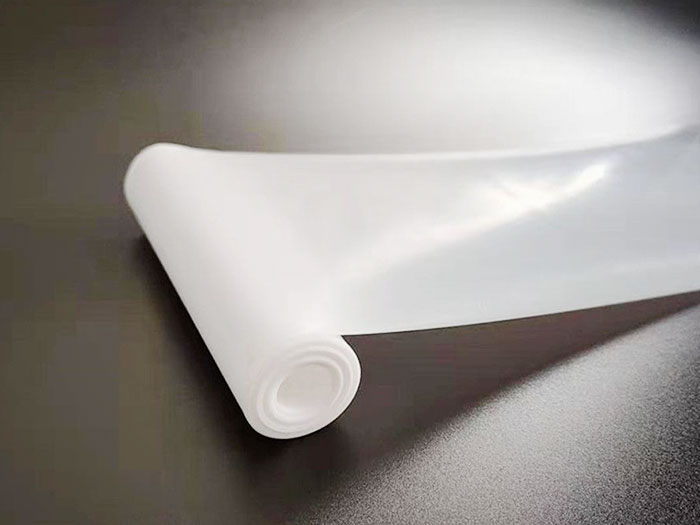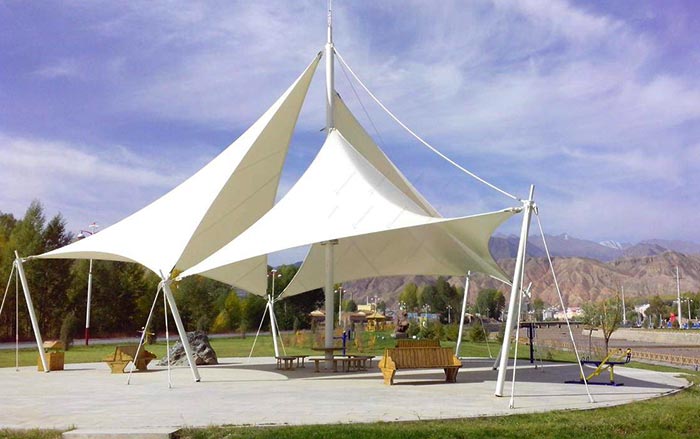Applications of PTFE tensile membrane
Polytetrafluoroethylene (PTFE) is a high-performance polymer known for its exceptional chemical resistance, low friction, and high-temperature stability. Often recognized by the brand name Teflon, PTFE has a wide array of applications across various industries. One of its more specialized forms is PTFE tensile membrane, which is engineered to deliver enhanced strength and durability. This article explores the applications and benefits of PTFE tensile film in multiple sectors, including aerospace, electronics, medical, and construction.
Understanding PTFE Tensile Membrane
PTFE tensile membrane is a stretched form of PTFE that exhibits remarkable mechanical properties. By subjecting the material to a tensile process, manufacturers enhance its strength while retaining its unique characteristics, such as non-stick properties and chemical inertness. The film can be produced in various thicknesses and dimensions, making it suitable for diverse applications.

1. Aerospace Applications
In the aerospace industry, materials must withstand extreme conditions, including high temperatures and corrosive environments. PTFE tensile membrane is used in:
- Insulation: PTFE membrane is utilized as insulators for wires and cables in aircraft. Their ability to resist high temperatures (up to 260°C) and chemicals makes them ideal for protecting sensitive electrical components.
- Seals and Gaskets: PTFE tensile membrane can be employed to manufacture seals and gaskets that ensure airtight and watertight connections in aircraft components. Their durability and resistance to wear make them suitable for high-performance applications.
- Surface Coatings: The non-stick properties of PTFE make it an excellent choice for surface coatings in aerospace applications. These coatings reduce friction and wear, enhancing the lifespan of mechanical parts.
2. Electronics Industry
The electronics sector has increasingly turned to PTFE tensile membrane for a variety of uses:
- Circuit Boards: PTFE is often used as a substrate material for flexible printed circuit boards (PCBs). Its excellent dielectric properties help in minimizing signal loss and enhancing performance in high-frequency applications.
- Insulation for Wiring: The film is used to insulate wires and cables in electronic devices. Its thermal stability and chemical resistance ensure reliable performance in various environmental conditions.
- Dielectric Films: PTFE tensile membranes serve as dielectric materials in capacitors, providing high insulation resistance and stability under varying temperatures and voltages.
3. Medical Applications
In the medical field, PTFE tensile membrane’s biocompatibility and chemical resistance make it invaluable:
- Surgical Instruments: PTFE membranes are used as coatings for surgical instruments to enhance their non-stick properties, making them easier to clean and handle during procedures.
- Medical Devices: The film is used in various medical devices, including catheters and implants. Its resistance to bodily fluids and sterilization processes ensures that these devices maintain integrity and safety.
- Drug Delivery Systems: PTFE tensile membrane can be employed in drug delivery systems to control the release of medications. Their chemical inertness makes them ideal for encapsulating pharmaceuticals without reacting with the drug.

4. Construction and Architecture
In construction, PTFE tensile membrane is used to enhance the durability and performance of various building components:
- Architectural Membranes: PTFE tensile membranes are often used in architectural applications, such as tensile structures. These membranes provide weather protection while allowing natural light to penetrate buildings.
- Roofing Materials: The film’s resistance to UV radiation and weathering makes it an excellent choice for roofing applications, extending the lifespan of roofs and reducing maintenance costs.
- Expansion Joints: PTFE tensile membrane is employed in expansion joints to accommodate movement in structures while providing a weather-tight seal.
5. Food Processing
In the food processing industry, PTFE’s non-stick properties are particularly valuable:
- Conveyor Belts: PTFE membranes are used as conveyor belt coatings in food processing plants. Their non-stick surface ensures easy release of food products, enhancing efficiency and reducing waste.
- Baking Sheets: PTFE tensile membranes are used in baking sheets and pans, allowing for easy removal of baked goods and simplifying cleanup.
- Food Packaging: The chemical resistance of PTFE makes it suitable for food packaging applications, where it helps preserve the quality and safety of food products.
6. Automotive Applications
The automotive industry benefits from PTFE tensile membrane in several ways:
- Gaskets and Seals: PTFE membrane is utilized in gaskets and seals for engines and transmissions, providing chemical resistance and durability under high-stress conditions.
- Fuel Line Protection: The membrane is used to protect fuel lines from corrosive fuels and lubricants, ensuring long-lasting performance.
- Brake Systems: PTFE’s low friction properties are advantageous in brake systems, where they help reduce wear and improve efficiency.
7. Renewable Energy
PTFE tensile membrane is making strides in the renewable energy sector:
- Solar Panels: The membrane is used as a protective layer in solar panels, enhancing their durability and resistance to environmental factors.
- Wind Turbines: PTFE membrane is applied in wind turbine components to reduce friction and wear, thus improving the efficiency and longevity of these systems.

Conclusion
The applications of PTFE tensile membrane is vast and varied, showcasing its versatility and performance across multiple industries. From aerospace to food processing, PTFE continues to be a material of choice for engineers and manufacturers looking for reliability and durability. Its unique properties, including chemical resistance, thermal stability, and low friction, make it an invaluable asset in modern technology and industrial processes. As industries evolve and new applications emerge, PTFE tensile membrane is likely to play an increasingly important role in driving innovation and enhancing performance.